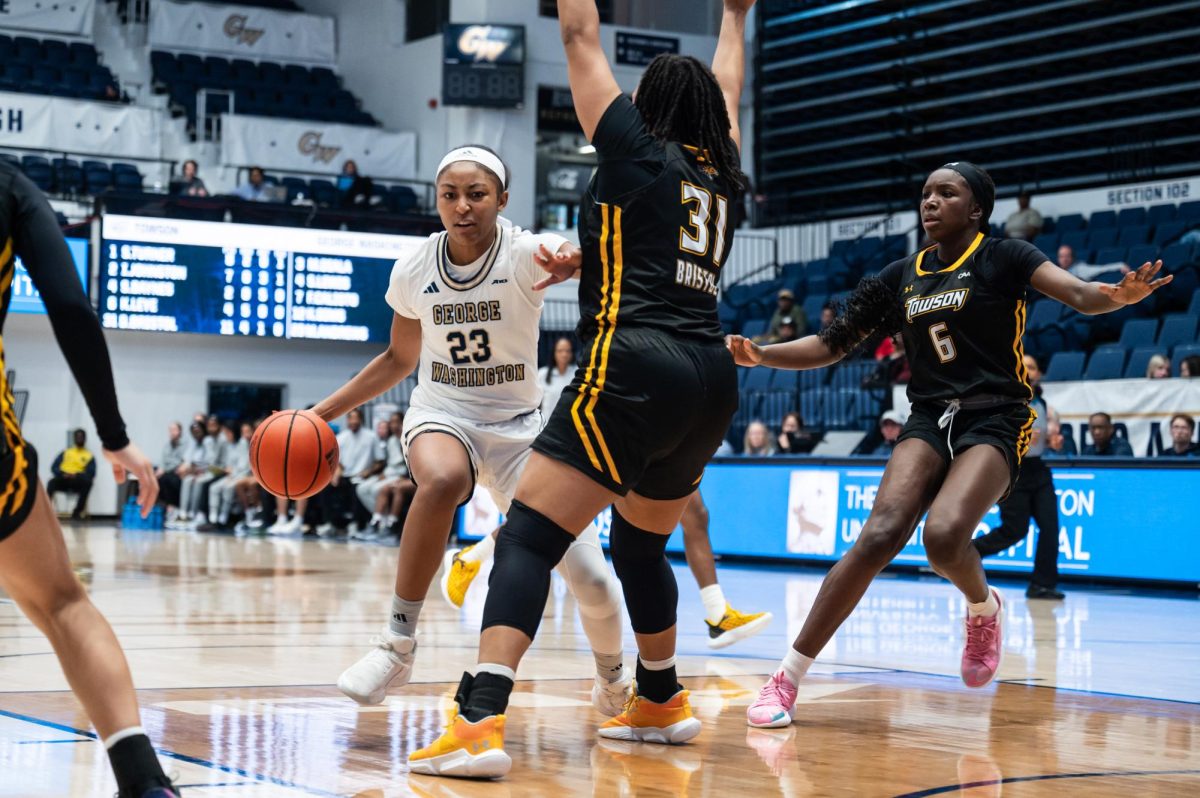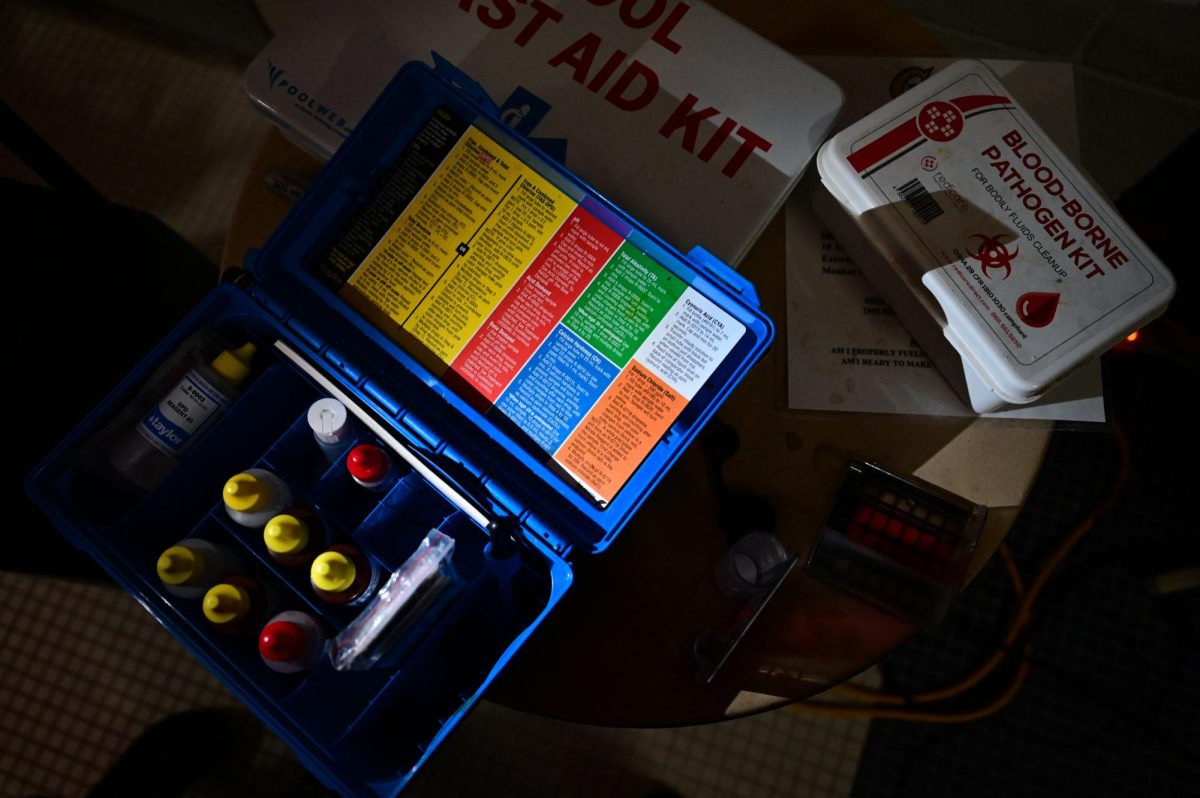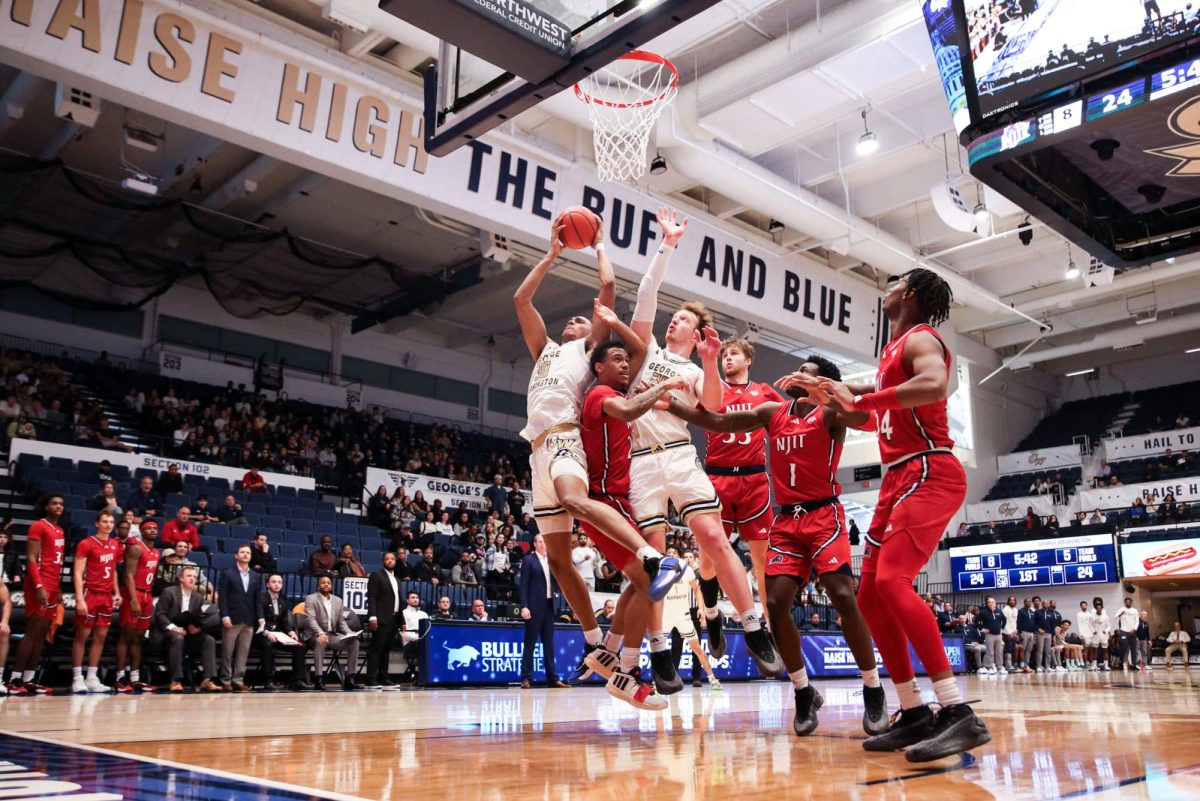Head softball coach Shaunte’ Fremin resigned last Monday amid allegations that she was abusive to players and violated NCAA rules.
Her decision, which the athletic department announced Thursday in a letter to softball players and parents, came as an independent review of her conduct was “nearing completion,” the letter said. Players told The Hatchet last month that Fremin, a first-year coach, often coerced them into playing with serious injuries, deceiving trainers and doctors and practicing over the NCAA’s weekly limits. As a result of their injuries, the University suspended the softball season in early March and canceled it March 22.
Director of Athletics Jack Kvancz said Friday that the accusations were severe but that what really happened was “probably somewhere in the middle” of what the players alleged and Fremin’s flat denial of the charges. The completion of a report by outside investigator Robin Green Harris could potentially have led to Fremin being fired, but players said they are glad Fremin did not wait for that to happen.
“Because of the situation at hand, I feel like it was the best decision for her to resign rather than hanging around and waiting for the University to make a decision,” freshman co-captain Gabby Culp said.
“I think it took a long time, longer than I thought it would, but it’s finally nice to know she had resigned even though it was inevitable,” sophomore Rebecca Schumer said.
Fremin could not be reached for comment, but Kvancz said the coach submitted her unforced resignation by handing him a brief note last Monday without saying anything. He added that the athletic department did not inform the team until Thursday because it was working on drafts of the letter.
In the letter, Kvancz and Senior Associate Athletic Director Mary Jo Warner wrote, “Ultimately we concluded, as did Ms. Fremin, that this position was not a good fit for either her or the University.”
Kvancz confirmed that Fremin put the team in violation of the NCAA’s 20-hour rule, which limits the amount of time a team can practice, and said the University will report all violations to the NCAA within the next few weeks.
“The University believes there were some secondary NCAA violations, and it will be reporting its findings to the NCAA in the near future,” the letter said.
Despite the infractions, however, Kvancz said the athletic department is now focused on finding a new coach, which likely will not happen at least until early summer, when it becomes clear which coaches are available. In the meantime, assistant coach Trena Peel, who some players say they want to be the new head coach, will oversee a reduced practice schedule.
“(Finding a coach) is my focus now,” Kvancz said. “I want a person who realizes that it’s going to take a while. Rome was not built overnight. You can’t just snap your fingers and it’ll get better.”
Culp’s mother, Linda Kirkland-Culp, said as a parent she wants to see the program move forward but that GW must be careful in its hiring process.
“We need to make sure GW does a thorough background check so we know what we’re getting,” she said. “It should be someone who is used to working with the type of academic environment of GW. You can’t just demand the time (Fremin) demanded from students.”
Kvancz agreed that any potential coach must “know GW” and understand that student-athletes come here for more than just sports but said there was nothing wrong with the way they went about hiring Fremin. He added that what happened with Fremin is not indicative of any general problems within the department but that he will look for ways it can improve.
“It behooves all of us to take a look at all of our programs,” Kvancz said. “I think our coaches are very good, but we have to understand what happened here so it doesn’t happen again. Not just in (softball) but in every sport.
“And I think education is a big part of that,” he added. “Because the kids need to know what’s legitimate and what’s not legitimate. So you educate the kids and you educate the coaches.”
While looking to the future, Kvancz said GW will also ask the NCAA to ensure that this season will not count against any player’s four years of eligibility.
“It’s not automatic,” he said. “But I would like everybody to get that one year back.”
–Joshua Meredith contributed to this report.






